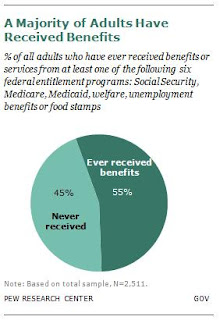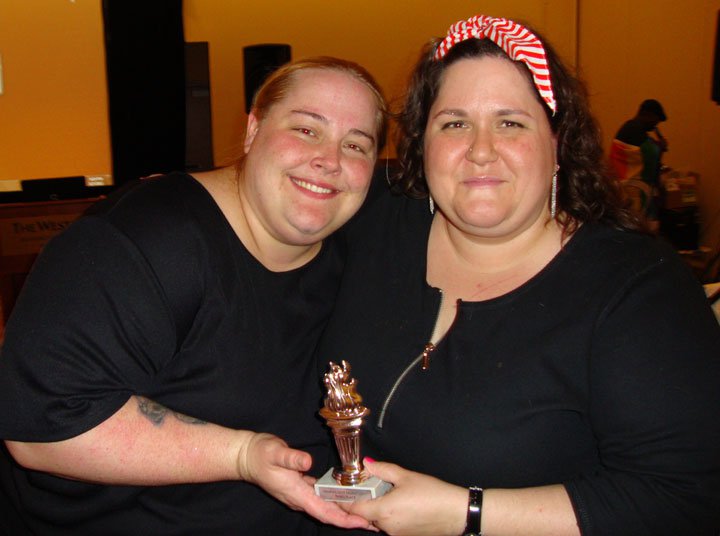The Good, the Bad... the Ex
Oh, old fling, how you serve
us romance writers. Might you be the experience from which our hero learned invaluable
lessons in love? The romantic foil, who steps in during the blossoming stage of
the new romance to offer some romantic tension? Or might you be the story’s hero, emerging fully
developed from the shero’s past, ready to admit your historic idiocy and woo
her back into your manly arms?
No doubt about it: the old fling is a powerful stock character for us romance authors. And like most
stock characters, The Ex™ should be used sparingly.
Although all of the
incarnations of the ex deserve extensive discussion, it’s the last trope I wish
to address. To put us in the mood, imagine this: We’re introduced to our shero
(it could be our hero, but the male ex is more common), whose life is all right
but, you know, inevitably bereft in a few ways. She tries not to think of the
ex, whose long-ago betrayal sent her spinning out of his arms and into the cold
embrace of a him-less future. And then… He re-enters her world. She hates him,
spurns him, closes the door in his handsome, repentant face. But no, he shan’t
be thwarted in his pursuit of redemption. The beat of their unresolved romantic tension
pounds throughout the story until the very last chapter, in which the hero reveals the true
circumstances behind that long-ago betrayal. His past victimization laid bare, his
heroic sacrifice of their love for selfless purposes exposed, the couple rejoices in
their transcendent love. They zip to the closest major department store to
start a wedding registry.
I have deep respect for
literary archetypes. They form the basic outline of our craft, much like
notions of closed bottoms and open tops help potters shape their wares. But,
well, is it just me, or is this one just the slightest bit overused?
I get the purpose of it. This
trope packages up a whole host of literary conventions in one small character. Thanks to the ex,
the romance comes largely developed (we need to just clear away that little
misunderstanding from twelve years ago) and the plot’s source of tension
arrives ready-made. The rest of the book practically writes itself!
As a reader, though, I have to admit to usually feeling a little cheated
when the book uses the straight-out-of-the-box Tragic Betrayal incarnation of The Ex™. Perhaps I’m in the minority, but I honestly wonder what
romantic could find it satisfying to read through a romance that appears before
us fully formed. I don’t know about anyone else, but I like seeing the romance blossom. I dig the internal dialogues as
characters wrestle with what love means to them. I cherish the awkwardness of
the first kiss.
In short, I want to see them
fall in love, and introducing a prepackaged romantic couple only separated by misunderstood
and tragic circumstances robs me of that.
As a writer, I find myself frequently exasperated with this trope
because it requires little creativity. I think of it as one of those tubes of
chocolate chip cookie dough; just because you’re the one that scoops the goop
onto the baking sheet and slides it into the oven doesn’t necessarily equal homemade chocolate chip cookies. Plus,
the story often lacks, since the major source of tension, that unresolved act
of betrayal, is one small, rather transparent curtain separating the pair; we
readers wait with (if you’re me) impatience while the characters remember how
to unblock a window. One little conversation, and the entire book’s dance of
evasion and impassioned anger (probably, but not requisitely, including heaving
bosoms) becomes pointless. The day is won.
I can understand authors of
novellas, those travel-sized novels, strategically employing this trope in
hopes of saving some space. And perhaps some talented authors can breathe fresh
life into the archetype. But the rest of us might benefit from veering away
from these ready-made, boxed, and sealed characters. If not for our own
creative sakes, out of respect for our readers.
And hey, maybe a little for
our characters, too, who just might like a little more room to grow and
breathe.





Was trying to think if I had ever used an ex. You know something? He seems to work better in poems than in novels. Good as a trope..but only for short lengths of time. Then he gets kind of overripe..
ReplyDeleteWell said! I couldn't agree more.
DeleteI've definitely used my exes, but much more abstractly than literally. :) As for exes in my novels, I'm not a big fan of romantic triangles and forced, ready-made tension, so I tend not to go there.